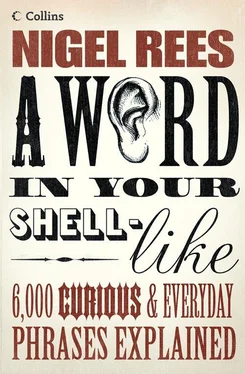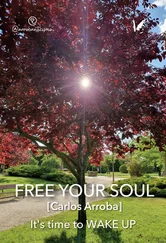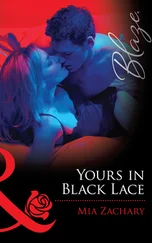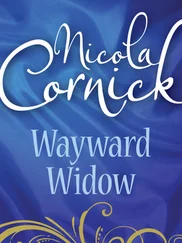anotherSee HERE’S A FUNNY.
another countryJulian Mitchell’s play Another Country (1981; film UK 1984) shows how the seeds of defection to Soviet Russia were sown in a group of boys at an English public school. The title comes not, as might be thought, from the celebrated line in Christopher Marlowe’s The Jew of Malta ( circa 1592): ‘Fornication: but that was in another country; / And besides the wench is dead.’ Rather, as the playwright has confirmed, it is taken from the second verse of Sir Cecil Spring Rice’s patriotic ‘Last Poem’ (1918), which begins ‘I vow to thee, my country’ and continues ‘And there’s another country, I’ve heard of long ago – / Most dear to them that love her, most great to them that know.’ In the original context, the ‘other country’ is Heaven, rather than the Soviet Union, of course. Another Country had earlier been used as the title of a novel (1962) by James Baldwin.
another day – another dollar!What one says to oneself at the conclusion of toil. Obviously of American origin but now as well known in the UK where there does not appear to be an equivalent expression using ‘pound’ instead of ‘dollar’. Partridge/Catch Phrases dates the phrase from the 1940s in the UK and from circa 1910 in the US.
another little drink wouldn’t do us any harmThis boozer’s jocular justification for another snort is rather more than a catchphrase. Allusion is made to it in Edith Sitwell’s bizarre lyrics for ‘Scotch Rhapsody’ in Façade (1922): ‘There is a hotel at Ostend / Cold as the wind, without an end, / Haunted by ghostly poor relations…/ And “Another little drink wouldn’t do us any harm,” / Pierces through the sabbatical calm.’ The actual origin is in a song with the phrase as title, written by Clifford Grey to music by Nat D. Ayer and sung by George Robey in the show The Bing Boys Are Here (1916). It includes a reference to the well-known fact that Prime Minister Asquith was at times the worse for wear when on the Treasury Bench: ‘Mr Asquith says in a manner sweet and calm: / And another little drink wouldn’t do us any harm.’
(that’s) another meal the Germans won’t haveDismissive catchphrase on finishing a meal. ‘When my (French) wife arrived in this country some thirty years ago, she surprised me by remarking, after a particularly good meal, “Voilà, un autre repas que les Allemands n’auront pas.” This saying apparently derived from her mother, or indeed her grandmother, who suffered in the Occupation. To my astonishment, on a trip to Avignon ten years ago, after an exceptional banquet, a young French lad aged about 25, turned to my wife and made the same remark. It would seem that this has now become a French proverb’ – Raymond Harris (1995). Confirmation comes from The Sunday Times (23 March 1997): ‘Older Frenchmen admitted they sometimes still use the toast, when raising their glasses, of “This is one the Boches won’t get”.’ And from even further back: ‘On his first visit to Germany nearly forty years later, [Matisse] told one of his students that…he never forgot his mother repeating like a grace at meals: “Here’s another one the Germans won’t lay their hands on”. The phrase would become a familiar refrain throughout the region during the incursions of the next seventy-five years and more’ – Hilary Spurling, The Unknown Matisse , Vol. 1 (1998), referring to the Prussians who passed through north-eastern France in the 1871 Franco-Prussian war.
another opening, another show!Show business exclamation – perhaps uttered ironically, like ON WITH THE MOTLEY! ‘Another Op’nin, Another Show’ is the title of a song sung by the members of a theatrical troupe in Cole Porter’s musical Kiss Me Kate (1948).
another page turned in the book of lifeConversational reflection on someone’s death. One of the numerous clichés of bereavement, designed to keep the awfulness of death at bay by means of comfortingly trite remarks. A cliché by about 1960. However, the notion of life as a book whose pages turn can be invoked on other occasions as well. On 1 September 1872, the Reverend Francis Kilvert wrote in his diary: ‘Left Clyro for ever. A chapter of life closed and a leaf in the Book of Life turned over.’ In its original biblical sense, the said book is a record of those who will inherit eternal life (as in Philippians 4:3 and Revelation 20:12).
another part of the woodTitle of the first volume of (Lord) Kenneth Clark’s autobiography (1974) and taken from the stage direction to Act 3, Sc. 2 of Shakespeare’s A Midsummer Night’s Dream. Scene locations such as this were mostly not of Shakespeare’s own devising but were added by later editors. Clark said he wished also to allude to the opening of Dante’s Inferno : ‘I found myself in a dark wood where the straight way was lost.’ Lillian Hellman had earlier entitled one of her plays Another Part of the Forest (1946) and Beryl Bainbridge, a novel, Another Part of the Wood (1968).
another Sunday and sweet FAThis phrase was used as the title of a Granada TV play by Jack Rosenthal (UK 1972) about the struggles of a referee during an (amateur) Sunday-morning football game. But was it a phrase before the play? Compare the (subsequent) diary of a member of the British forces in the Falklands conflict, found on the internet. On Sunday 16 May 1982, he wrote: ‘All I can say about today is another bloody Sunday and sweet FA. We were due to be linked up with the rest of the task force during the night but due to the extreme bad weather all ships have had to slow down.’
answerSee IS THE RIGHT.
(the) answer is in the plural and they bounceThat is to say, ‘balls!’ – reputedly the response given by the architect Sir Edwin Lutyens to a Royal Commission. However, according to Robert Jackson, The Chief (1959), when Gordon (later Lord) Hewart was in the House of Commons, he was answering questions on behalf of David Lloyd George. For some time, one afternoon, he had given answers in the customary brief parliamentary manner – ‘The answer is in the affirmative’ or ‘The answer is in the negative’. After one such non-committal reply, several members arose to bait Hewart with a series of rapid supplementary questions. He waited until they had all finished and then replied: ‘The answer is in the plural!’
(the) answer’s a lemon!Fobbing-off phrase. ‘My Cumbrian grandmother when asked a question would reply, “The answer’s a lemon”. “Why?” we asked – “ Suck it and see,” was her response’ – Janet C. Egan (2000). This exchange brings together two well-known expressions. ‘The answer is a lemon’, being a non-answer to a question or a refusal to do something requested of one, is probably of American origin and seems to have been in use by 1910. A lemon is acidic and sour, and there are several other American phrases in which a lemon suggests that something is unsatisfactory or not working properly. The lemon is also the least valuable object on a fruit machine. ‘Suck it and see’, meaning ‘try out’, presumably derives from what you would say about a sweet – ‘suck it and see whether you like the taste of it’. It was used as a catchphrase by Charlie Naughton of the Crazy Gang, though it is probably of earlier music-hall origin – at least according to W. Buchanan-Taylor, One More Shake (1944). Partridge/Slang dates it from the 1890s. A correspondent, H. E. Johnson, suggested (1999) that it started with a Punch cartoon at the turn of the 19th/20th century, with the caption: First urchin: ‘I don’t know if this here’s a plum or a beetle.’ Second urchin: ‘Suck it and see.’
Читать дальше












